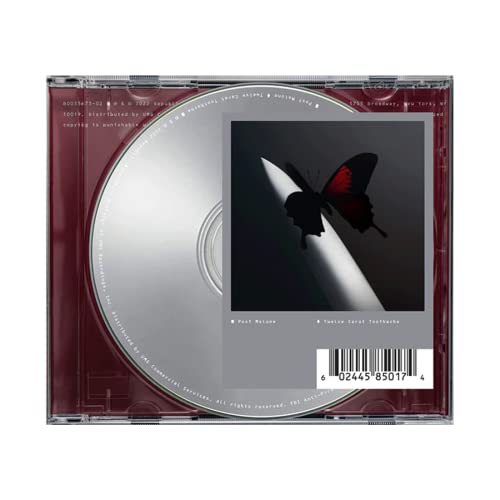
Post Malone
Twelve Carat Toothache
Release Date: Jun 3, 2022
Genre(s): Rap
Record label: Island
Music Critic Score
How the Music Critic Score works
Buy Twelve Carat Toothache from Amazon
Album Review: Twelve Carat Toothache by Post Malone
Average, Based on 4 Critics
Based on rating 3
A half-in, half-out approach leaves the wobbly-voiced warbler stuck at a fork in the road It's a perilous business viewing music in individual decades, as only a split second separates the end of one from the beginning of another, but Post Malone looks set to be defined as a late-2010s artist. From 2017 to 2019 the wobbly-voiced warbler had some of the era's biggest hits but a lengthy hiatus has killed the momentum, leaving him scrambling to recapture his old audience. Twelve Carat Toothache works best when Post is energetic and chirpy, as seen on the bass-heavy Cooped Up with Roddy Ricch and the irresistible topline of Andrew Watt co-write Wrapped Around Your Finger.
Based on rating 2.5/5
There are plenty of reasons to lament Post Malone and his ubiquitous pop-culture dominance these past few years. The 26-year-old singer born Austin Richard Post broke through the SoundCloud white noise in 2015 with "White Iverson," a benign commercial pop song whose Hip Hop-derived swagger sparked well-warranted conversations on Black cultural appropriation among white singers. Post Malone did little to quell these talking points during the early days of his career but by 2018, he still had the biggest album in the country with beerbongs & bentleys, was planning his own music festival and taking Jimmy Fallon to Olive Garden.
Based on rating 3/10
Twelve Carat Toothache, the new album from Texas singer-songwriter Post Malone, makes for a confusing listen. Just a few years ago, Malone felt unstoppable. His 2018 album beerbongs & bentleys was a massive success. It's certified seven-times platinum in Canada, spawned three platinum and two diamond singles, and blasted the singer into the A-list stratosphere.
Opinion: Average
Post Malone has always divided opinions. Undeniably successful, his legion of fans are joined by a seemingly equal array of haters - for some, he's an idol; for others, a culture vulture. 'Twelve Carat Toothache' is dominated by duality, from the song titles - 'I Like You (A Happier Song)' to 'I Cannot Be (A Sadder Song)' - down to the lyrical content, which toys between his reputation and reality.
'Twelve Carat Toothache'
is available now

